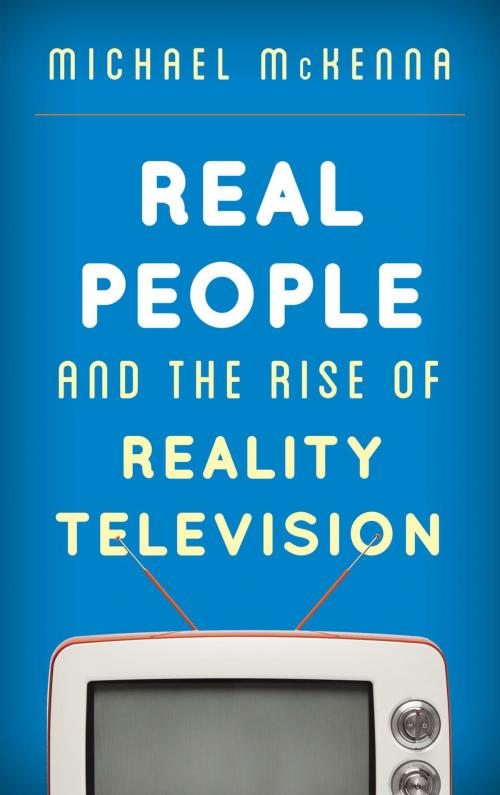Real People and the Rise of Reality Television
Nonfiction, Entertainment, Performing Arts, Television, History & Criticism, Social & Cultural Studies, Social Science, Cultural Studies, Popular Culture| Author: | Michael McKenna | ISBN: | 9781442250543 |
| Publisher: | Rowman & Littlefield Publishers | Publication: | June 25, 2015 |
| Imprint: | Rowman & Littlefield Publishers | Language: | English |
| Author: | Michael McKenna |
| ISBN: | 9781442250543 |
| Publisher: | Rowman & Littlefield Publishers |
| Publication: | June 25, 2015 |
| Imprint: | Rowman & Littlefield Publishers |
| Language: | English |
The origins of, and in many ways the prototype for, modern reality programming can be traced to Real People, a show that premiered on the NBC network in April of 1979. An instant ratings success, Real People appealed to an audience that clamored for stories about “everyday” men and women. However, many of the vignettes focused on individuals who were far from average—eccentric collectors, allegedly talented performers, and inspirational overachievers—many of whom could be called quirky, if not just plain weird. In the wake of the show’s success, a rash of imitators followed. What had started out as a counter-programming gamble became the norm, and now the television airwaves are littered with reality shows.
In Real People and the Rise of Reality Television, Michael McKenna looks at the show that started a trend in television viewing, one that now permeates not only the major networks but almost all of cable channels as well. McKenna traces the history of reality programming back to the early days of television up to the late 1970s when networks were beginning to take a chance on non-scripted prime time shows. The author provides an in-depth look at how Real People evolved from profiles of peculiar characters to an almost weekly display of hyper-patriotism, largely fueled by a desperate desire to recover from the disappointments of the 1970s. McKenna also charts the rise of shows that aimed to duplicate Real People’s success: That’s Incredible!, The People’s Court, COPS, America’s Funniest Home Videos, and MTV’s The Real World.
Though Real People was cancelled in 1984, reality-themed programming flourished and this look at the show’s history makes for a fascinating read. Fans of nonfiction programs owe a debt to the show that started it all, and Real People and the Rise of Reality Television provides readers with insights into how and why one show changed the cultural landscape forever.
The origins of, and in many ways the prototype for, modern reality programming can be traced to Real People, a show that premiered on the NBC network in April of 1979. An instant ratings success, Real People appealed to an audience that clamored for stories about “everyday” men and women. However, many of the vignettes focused on individuals who were far from average—eccentric collectors, allegedly talented performers, and inspirational overachievers—many of whom could be called quirky, if not just plain weird. In the wake of the show’s success, a rash of imitators followed. What had started out as a counter-programming gamble became the norm, and now the television airwaves are littered with reality shows.
In Real People and the Rise of Reality Television, Michael McKenna looks at the show that started a trend in television viewing, one that now permeates not only the major networks but almost all of cable channels as well. McKenna traces the history of reality programming back to the early days of television up to the late 1970s when networks were beginning to take a chance on non-scripted prime time shows. The author provides an in-depth look at how Real People evolved from profiles of peculiar characters to an almost weekly display of hyper-patriotism, largely fueled by a desperate desire to recover from the disappointments of the 1970s. McKenna also charts the rise of shows that aimed to duplicate Real People’s success: That’s Incredible!, The People’s Court, COPS, America’s Funniest Home Videos, and MTV’s The Real World.
Though Real People was cancelled in 1984, reality-themed programming flourished and this look at the show’s history makes for a fascinating read. Fans of nonfiction programs owe a debt to the show that started it all, and Real People and the Rise of Reality Television provides readers with insights into how and why one show changed the cultural landscape forever.















